Chaverri Research Lab
Dr. Priscila Chaverri
Department of Natural Sciences
pchaverri@bowiestate.edu
The Chaverri Research Lab focuses on phytobiomes (plant microbiomes) from wild relatives of economically important crops, understanding their function in natural ecosystems, and the implications for agriculture and conservation. More specifically, we are interested in the role fungi play in natural and agricultural systems. Our research uses multidisciplinary and hierarchical approaches, such as systematics, phylogenetics, evolution, ecology, plant pathology, genomics, and metabolomics, including observational and experimental.
Projects
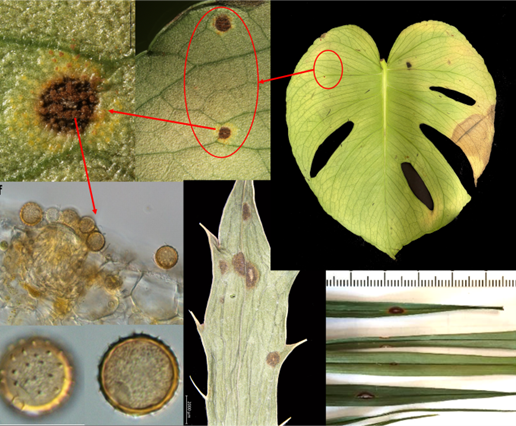 Systematics and Genomics of Plant Pathogens
Systematics and Genomics of Plant Pathogens
We are collaborating with USDA-ARS scientists Dr. Lisa A. Castlebury and Dr. Catalina Salgado-Salazar (Mycology & Nematology Genetic Diversity & Biology Laboratory), and Dr. Megan K. Romberg (Animal and Plant Health Inspection Service) in developing taxonomic, phylogenetic, and genomic resources for fungal plant pathogens that are usually intercepted at the ports-of-entry into the United States. We have worked or are working on fungi such as Colletotrichum liriopes (“anthracnose”) on the ornamental plant Liriopes, a new species of Entyloma (“white smut”) on the plant Eryngium planum, various scab fungi of the genus Elsinoë, Monstera rust (Pseudocerradoa paullula), and other unknown species of fungi on various ornamental plants. This project is funded by USDA-ARS.
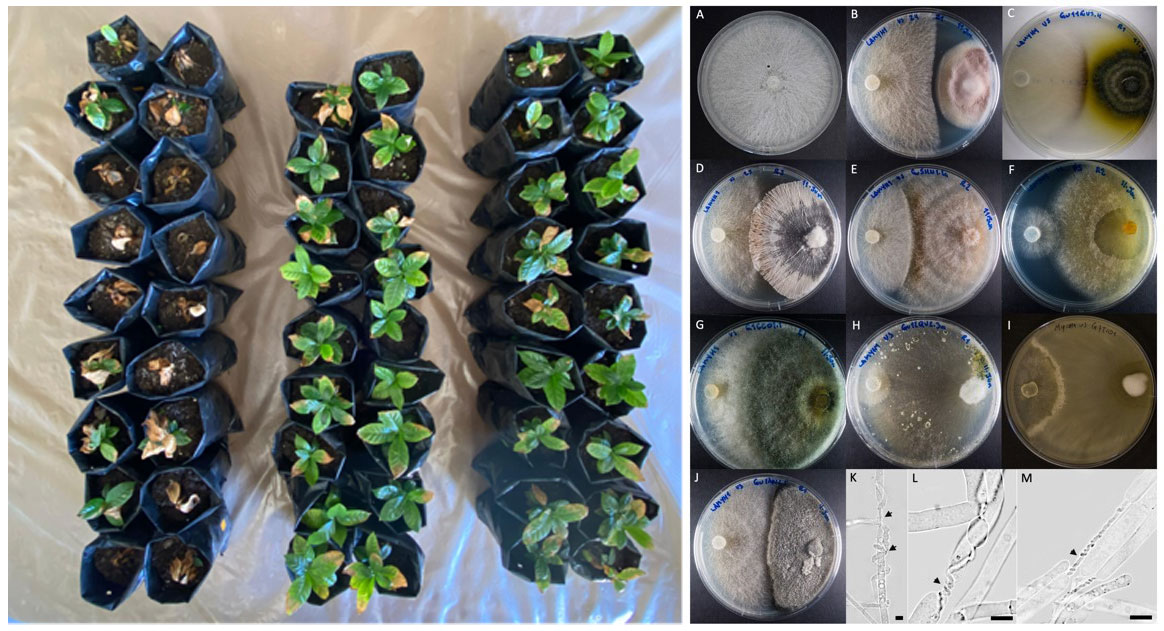 Phytobiomes of coffee plants and their relatives
Phytobiomes of coffee plants and their relatives
Coffee crops are being affected like never before by climate change, pests, and diseases. Coffee is mostly produced by low-income countries and small farm holders. Currently, the largest consuming regions (e.g., USA and Europe) are demanding more environmentally friendly agricultural products. This new demand has become challenging for producing countries because the transition from conventional to organic agricultural may be costly and the alternatives based on sound science are limited.
The research in our lab focuses on using the natural microbiota from wild relatives of coffee plants (the family Rubiaceae) in the tropics to search for alternatives to pesticides. More specifically, we are studying the endophytobiome (microorganisms that live inside the healthy tissues of plants; a.k.a. endophytes). We use systematics, genomic and metabolomic tools to predict which endophytic fungi will be able to protect coffee plants against diseases and drought, and at the same time, promote the plant’s growth (biofertilizer, biostimulant, biofungicide). We also apply these fungi to coffee seedlings. This approach is considered by some as analogous to the use of probiotics in humans, as these endophytic fungi improve the plant’s immunity. This ongoing and long-term project is a collaboration with scientists at the University of Costa Rica and the coffee co-op Coopetarrazu, both in Costa Rica.
Diversity of mycoviruses in fungal endophytes and their cryptic roles in plant health
Microbes are ubiquitous and associated with almost all living organisms. The associations or interactions microbes have with their hosts may range from beneficial to detrimental, and may be direct or indirect. However, considering that there are trillions of microorganisms on Earth, much of that diversity and interactions are unknown. A poorly studied group are viruses. The objective of this project is to begin to discover the diversity of viruses that inhabit fungi (a.k.a. mycoviruses) that live inside plants, the effects of mycoviruses on those fungi, and the indirect interactions and consequences on the plant hosts. One hypothesis of the study is that those mycoviruses serve as an “invisibility cloak”, so that the fungus can penetrate the plant without activating the plant defenses. The project will focus on beneficial and pathogenic fungi that inhabit coffee plants. While some mycoviruses may make a fungus more pathogenic on its plant host, others may make them less pathogenic (=hypovirulent mycoviruses), thus having potential applications in the engineering of those fungi to benefit crops. Plant pathology, mycology, virology, metagenomics, metatranscriptomics, and bioinformatics tools will be used in this project. Collaborators in this project are Dr. James Culver (University of Maryland), Dr. David Paez-Espino (Ancilia Biosciences), and Dr. Max Chavarría (University of Costa Rica and CENIBiot). This project is funded by U.S. National Science Foundation.
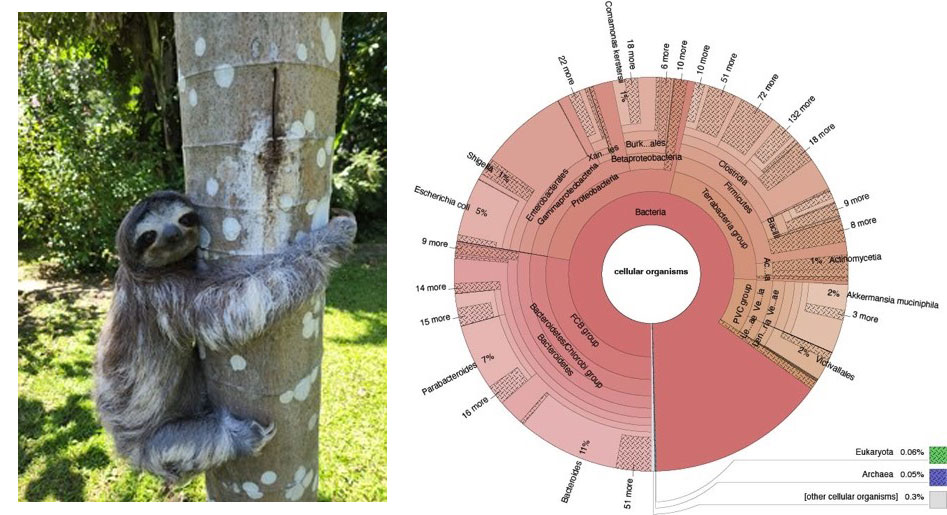
The microbiome of two species of sloths in Costa Rica
We are studying the gut microbiome in two-toed (Choloepus hoffmani) and three-toed (Bradypus variegatus) sloths in Costa Rica. The objective of this research is to determine the role microorganisms play in the digestion of plant material. We are using shotgun and targeted amplicon metagenomics, metatranscriptomics, and lignocellulolytic assays to answer our interrogations. This project is a collaboration with scientists at University of Costa Rica and the National Center for Biotechnological Innovations (CeNIBiot; Costa Rica).
Biodegradation of Polychlorinated Biphenyls (PCBs) using fungi
PCBs are prevalent toxic chemicals used in many industrial and commercial applications such as electrical, heat transfer and hydraulic equipment; plasticizers in paints, plastics and rubber products; and pigments, dyes and carbonless copy paper; among others. PCBs have been linked to serious health effects such as cancer and damages to the immune system, reproductive system, nervous system, and endocrine system, among others. In this project we are characterizing fungi from Maryland and assessing their tolerance to PCBs and bioremoval/bioremediation potential. This project is a collaboration with Dr. Birthe Veno Kjellerup (Department of Civil and Environmental Engineering, University of Maryland, College Park, MD).
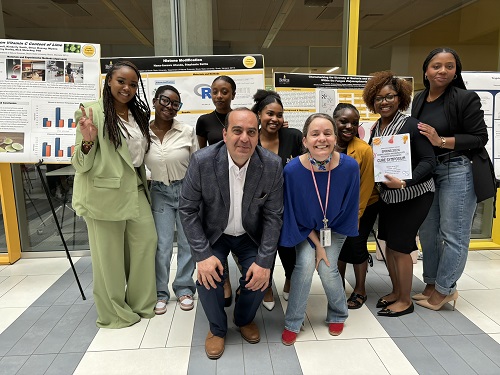
Research Experience students, spring 2024
Current Lab Members
We are always interested in motivated undergraduate, MSc students, and postdocs who want to join the group! Please contact Dr. Chaverri if you are interested in joining!
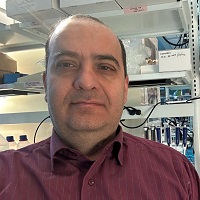 Dr. Abolfazl “Arash” Dadkhahtehrani
Dr. Abolfazl “Arash” Dadkhahtehrani
Research Associate/Lab Research Assistant
adadkhahtehrani@bowiestate.edu
 Cambly Morales-Lemus
Cambly Morales-Lemus
MSc student, Applied Biotechnology and Molecular Biology Program
moralesc1205@students.bowiestate.edu
Cambly will be working on systematics and genomics of plant pathogens.
 Michal Belle
Michal Belle
Undergraduate Research Assistant
Biology major
bellem0626@students.bowiestate.edu
Michal is mostly working with mycoviruses of endophytic fungi.
Independent Investigations
Skye Simms (Spring 2025)
Former Lab Members
Former Teaching Assistants
- Cameryn DuBose
- Rayjeanna Ennis
- TyNiah Dates
- Natasha Goldson
Former MSc student
- Keona Smith (rotating student for ABMB MSc program)
Former Undergraduate Researchers
- Natasha Goldson (graduated December 2024)
Former Independent Investigations Students
- Oluwabukolami (“Bukki”) L. Gbadeyan (Fall 2024)
- Amber Aniya Peoples (Fall 2024)
